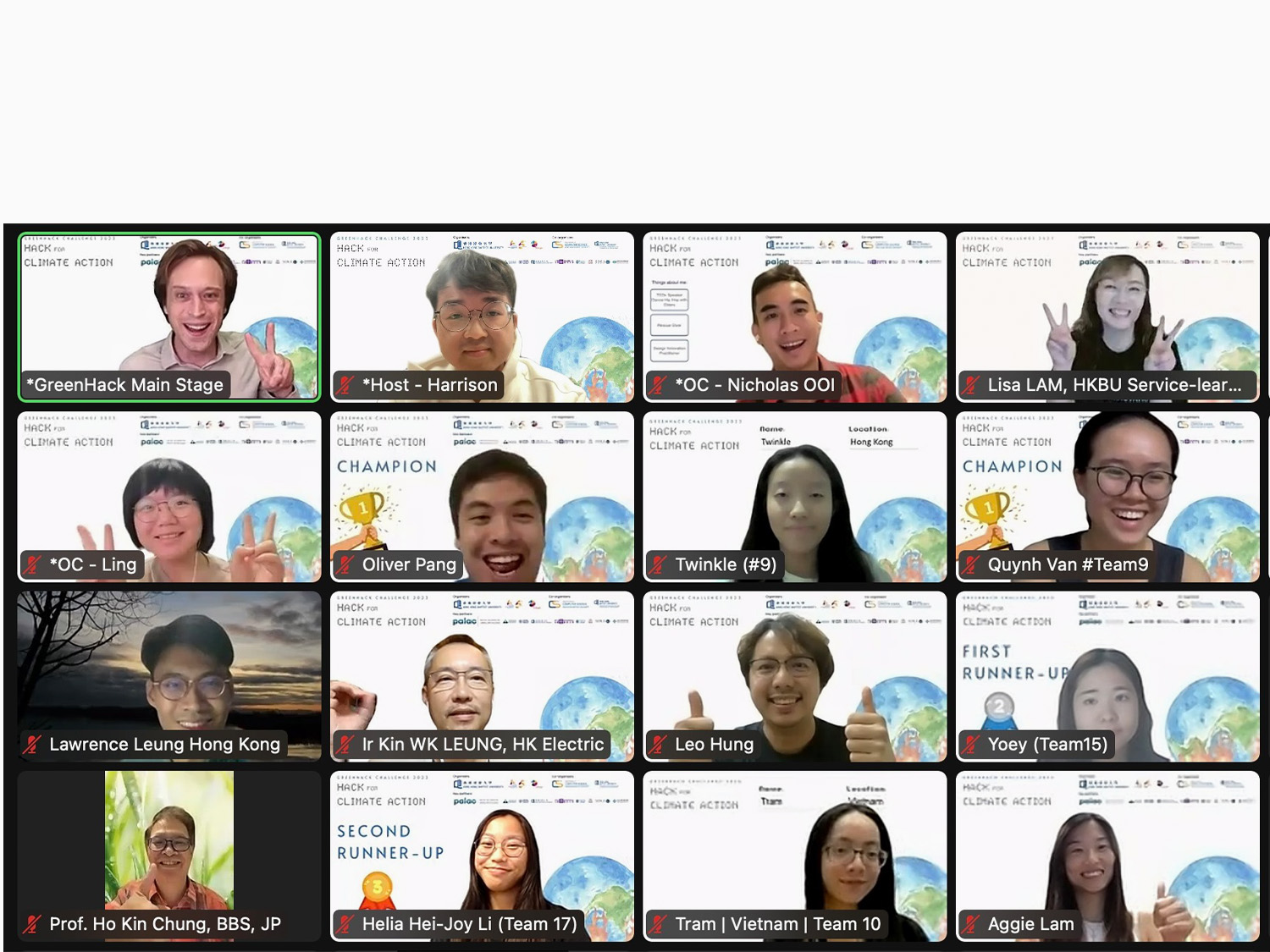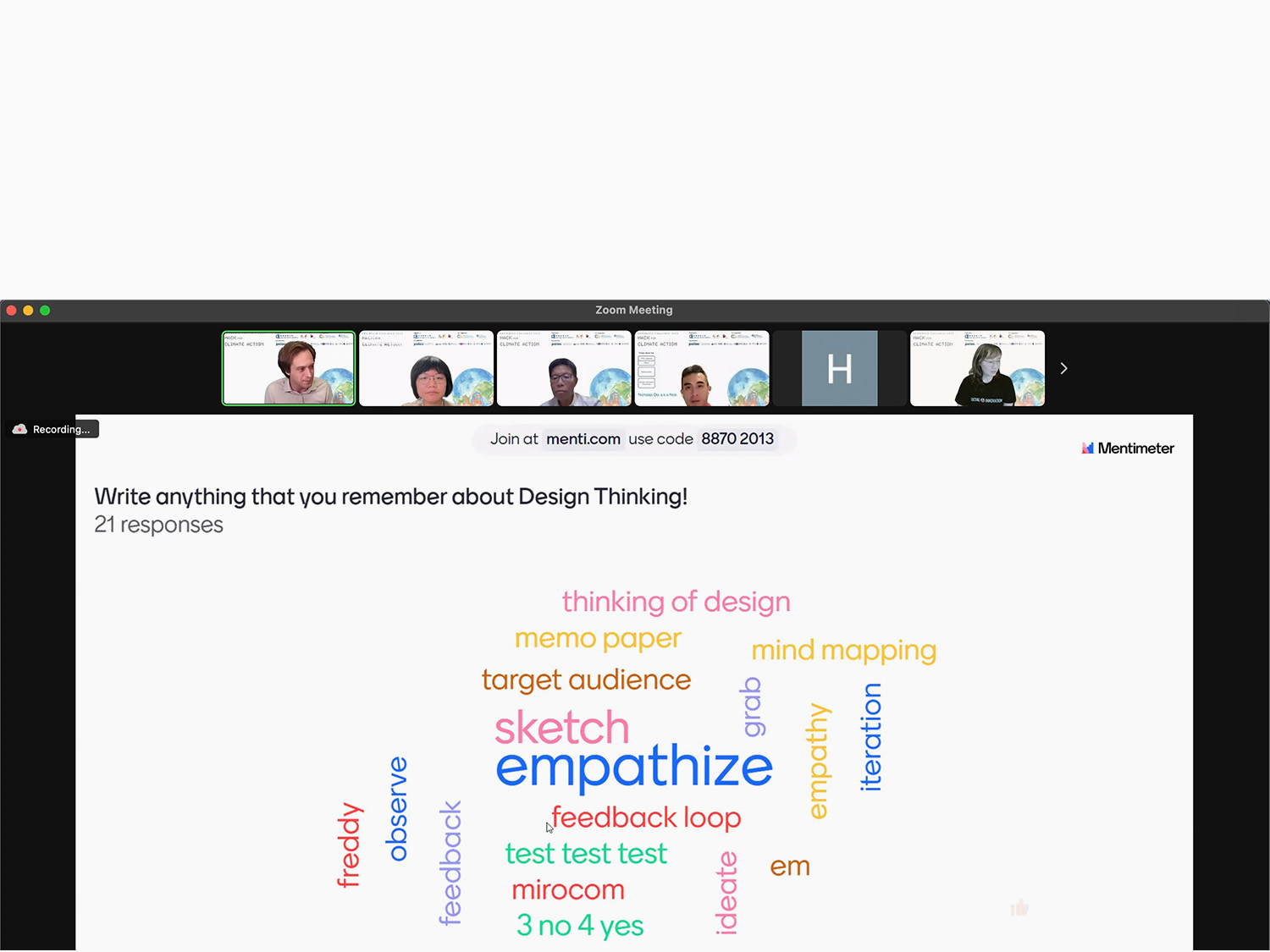SDG 13: Climate Action
HKBU students visited Fung Kai No.1 Primary School to deliver a STEM energy workshop to nearly 100 Primary 3 students as part of the "Sustainable Energy and Technological Innovation in China" service-learning course led by Dr Daphne Mah. During the session, the university students engaged the primary students in hands-on DIY weather station activities to help them understand how climate change influences solar efficiency. This workshop provided valuable opportunities for the HKBU students to educate younger students on environmental sustainability and carbon neutrality. They also visited the school's rooftop solar energy system to examine and reflect on community-based renewable energy infrastructures. To broaden the perspectives of HKBU students, they travelled to Shenzhen, Guangdong Province, to gain frontline insights into the technological developments in China.
Ten students from the Green Quest programme at the Leadership Qualities Centre of the Office of Student Affairs collaborated with a climate action advocate and an urban planner to explore the impact of individual behavioural changes and urban design on community sustainability. Through research and various activities, such as organising a clothes swap event, leading a beach clean-up, and hosting a climate café, the students raised community awareness of climate change. They also suggested improvements to age-friendly facilities in shopping centres and offered solutions to enhance community connectivity through the creative use of space.
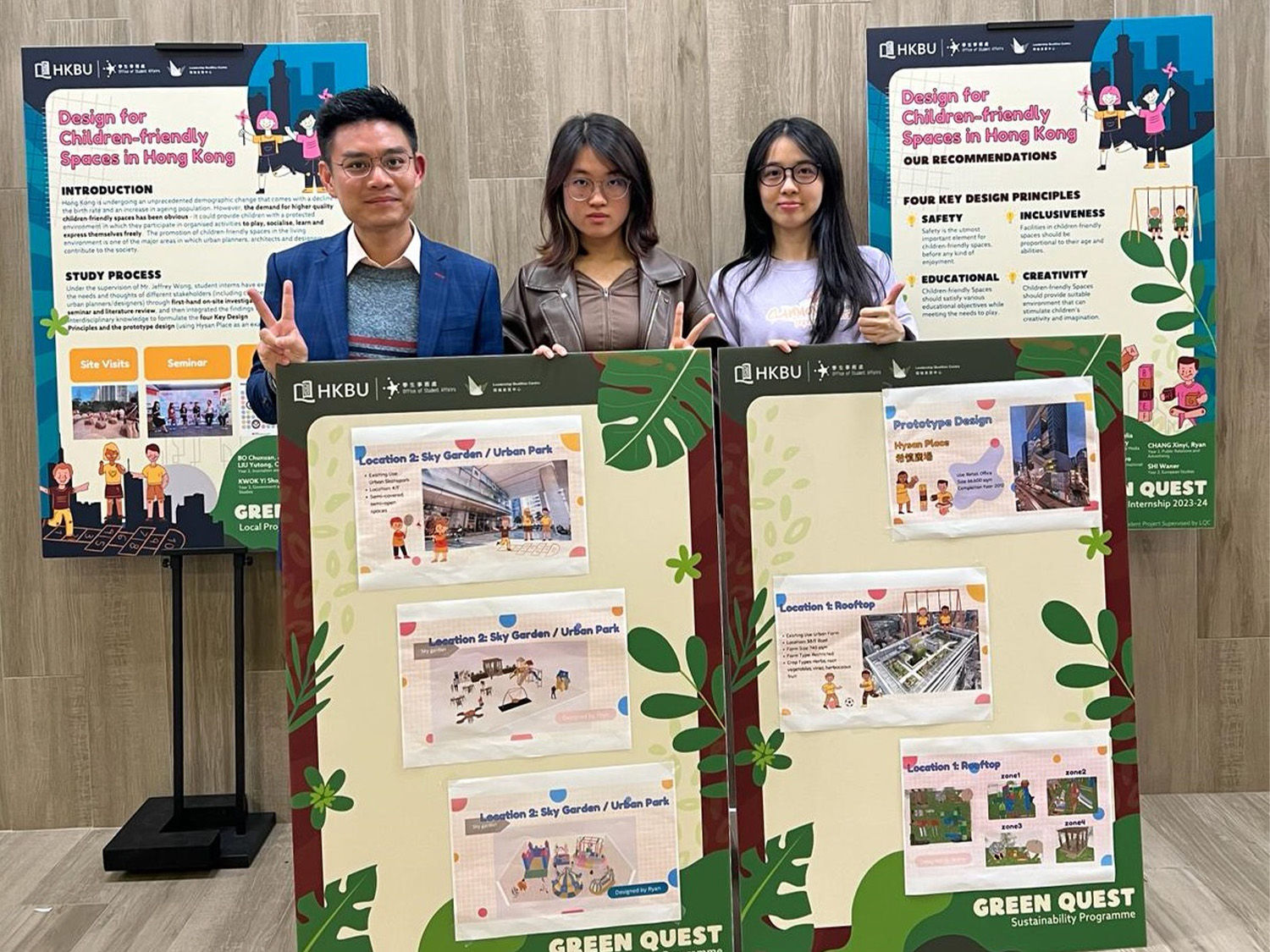

Shaping a sustainable world with global student innovators
The GreenHack Challenge 2023, organised by TriAngle of the Centre for Innovative Service-Learning, was a 48-hour global virtual event from 20 to 22 October 2023. It spurred global innovators to take climate action. Addressing the impacts of climate change, 110 students from 16 regions devised solutions for carbon reduction and environmental sustainability. The event fostered design thinking and technological applications to combat rising temperatures, with the winning team's "CommunIOTy" platform providing IoT-based flood management. The runners-up contributed with "RiceHusk", an upcycling enterprise, and "Blend&Go", which promotes water-efficient food technologies. These initiatives reflect the University's commitment to climate-responsive innovation.
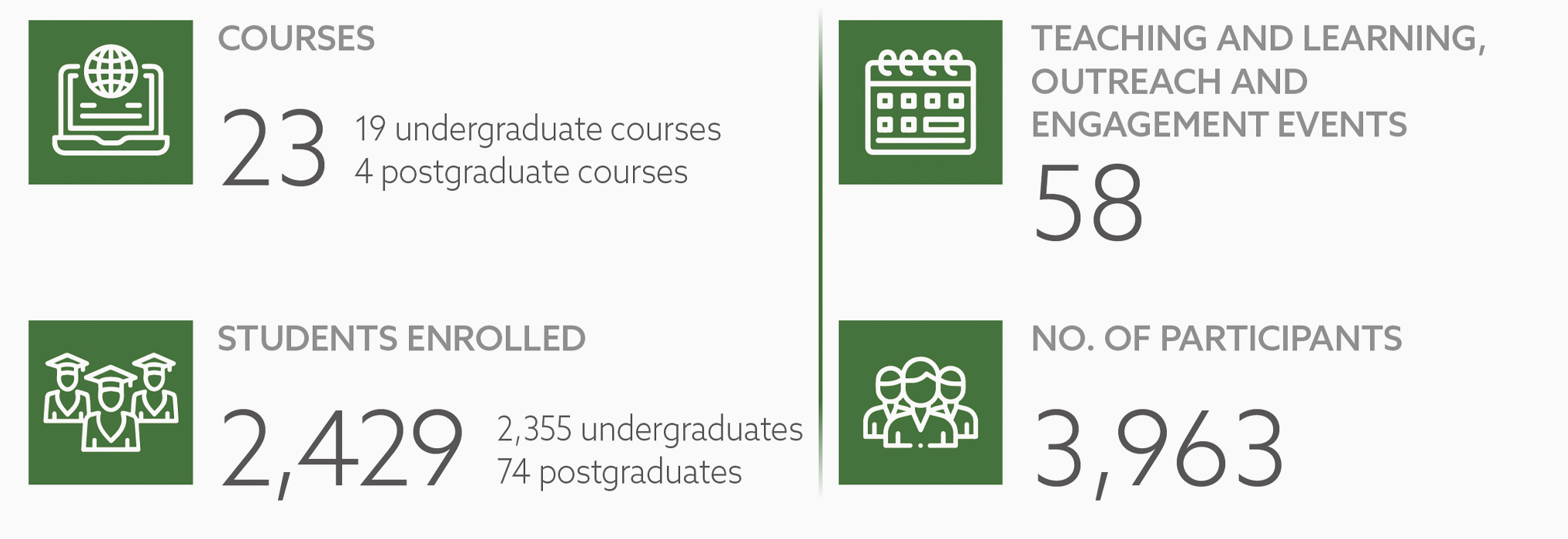

Department of Geography
Authors: Fan WANG, Yangyang XU, Piyushkumar N PATEL, Ritesh GAUTAM, Meng GAO*, Cheng LIU*, Yihui DING, Haishan CHEN, Yuanjian YANG, Yuyu ZHOU, Gregory R CARMICHAEL, Michael B MCELROY
*Corresponding author
This research explores the decline in dust loading in West and South Asia over the past two decades, attributing this trend to Arctic amplification due to anthropogenic global warming. By linking the reduction in dust levels to Arctic amplification-driven atmospheric alterations impacting dust emissions and transport, it underscores the intricate interplay between climate change and environmental phenomena in these regions. Climate model simulations corroborate the substantial role of greenhouse gas-induced Arctic amplification in shaping dust loading trends.
Furthermore, this research alerts to the potential adverse effects of carbon neutrality efforts leading to increased regional dust loading, stressing the importance of proactive anti-desertification measures such as reforestation and improved irrigation management. It highlights the necessity of integrated strategies to address climate change impacts on dust dynamics in West and South Asia while advocating for sustainable land management practices to combat desertification effectively.
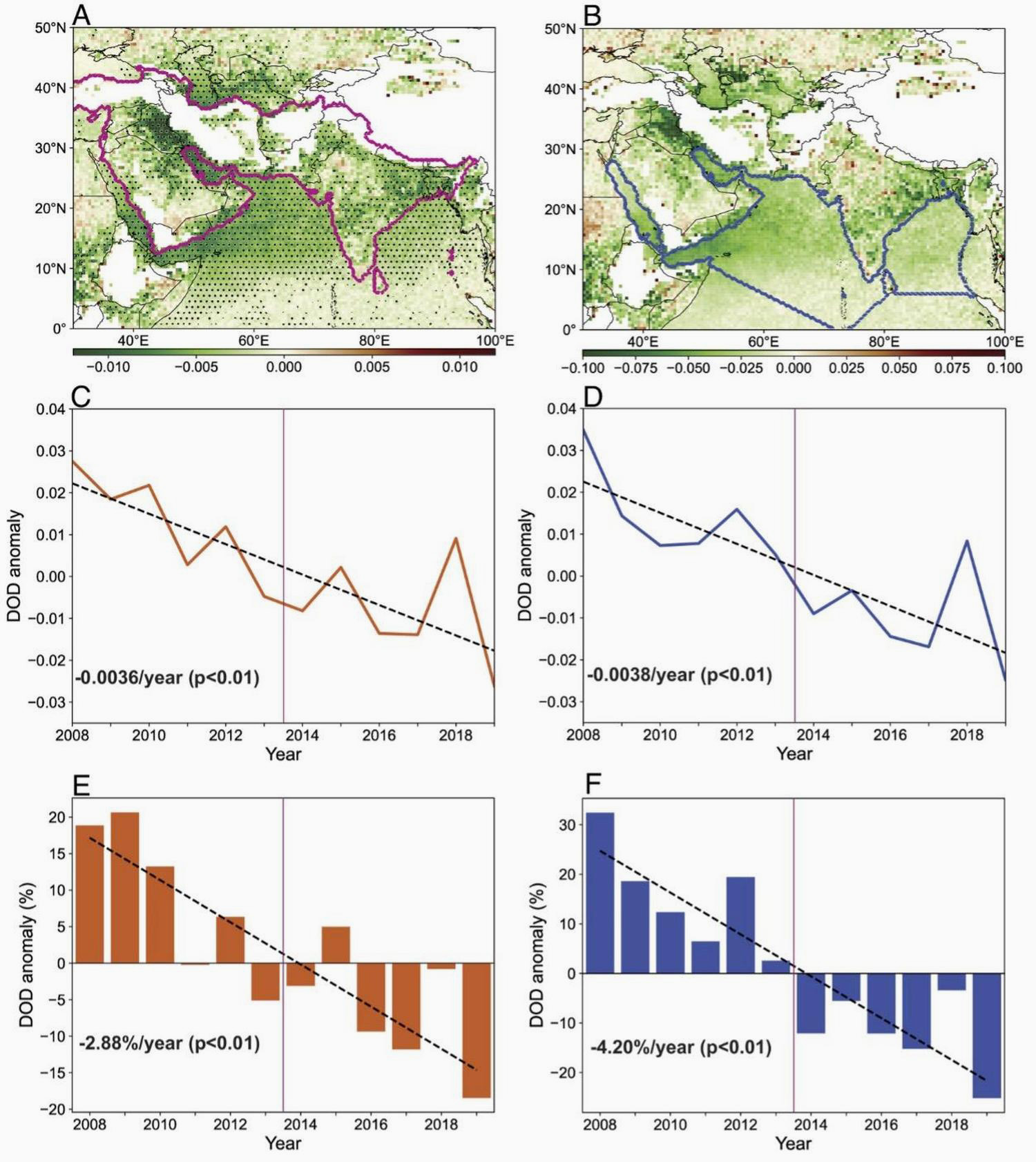

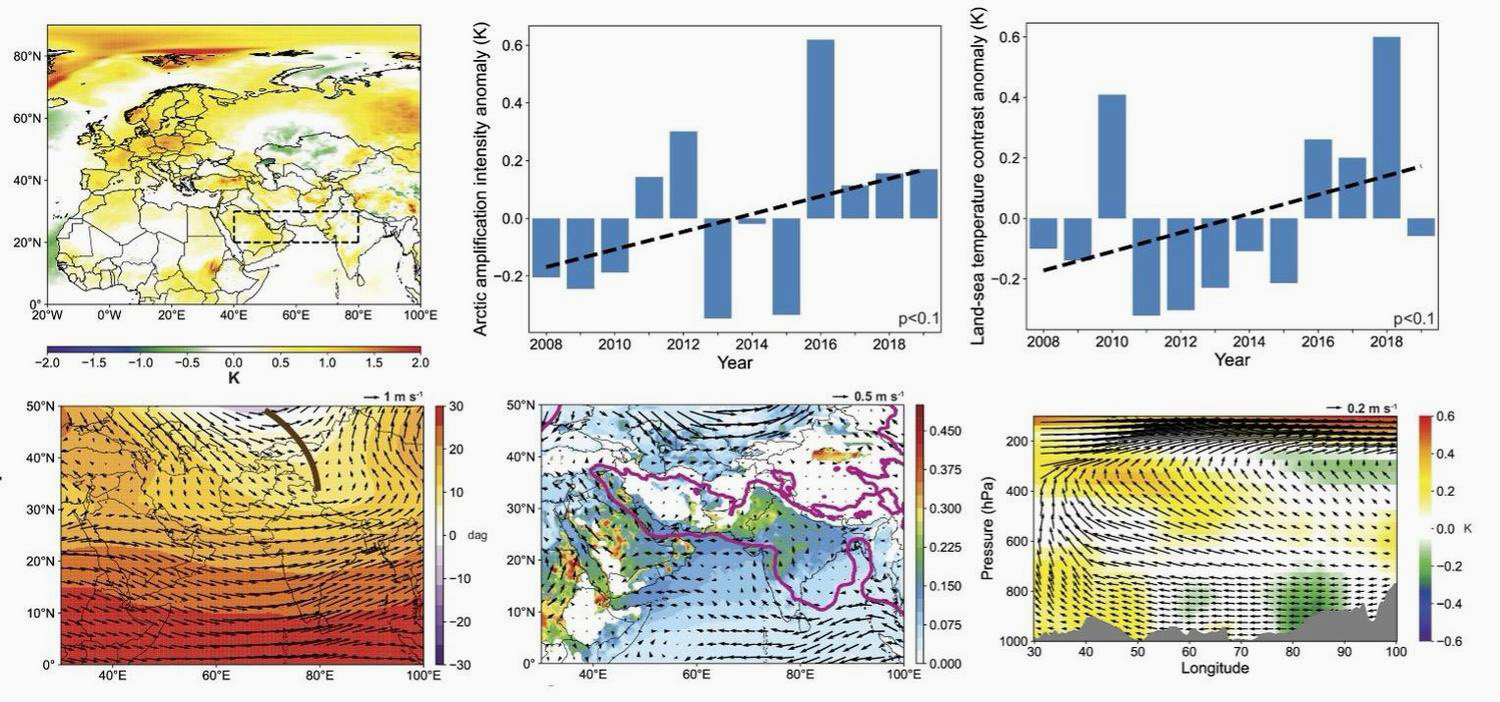

Trees In The Round
Academy of Visual Arts and Academy of Music
Authors: Roberto ALONSO TRILLO, Peter NELSON, Samson YOUNG*, Leo, Michael SCHIEFEL
*Corresponding author
“Trees In The Round” was an interactive performance made in collaboration with renowned Hong Kong artist Samson Young and engaged jazz vocalist Michael Schiefel. This project engaged one of Hong Kong’s most influential video artists and sound composers to work alongside Nelson and Alonso Trillo in the Visualisation Research Centre to produce an immersive performance for this unique system. Based on a combination of Alonso Trillo and Nelson’s research into generative adversarial networks and how AI produces 3-dimensional forms, alongside local histories of sacred trees in Hong Kong and cognitive scientific research into pattern recognition and edge detection relative to our evolving relationship with the physical environment over millennia. This 30-minute performance was presented in three fully-booked sessions during Art Basel 2024.
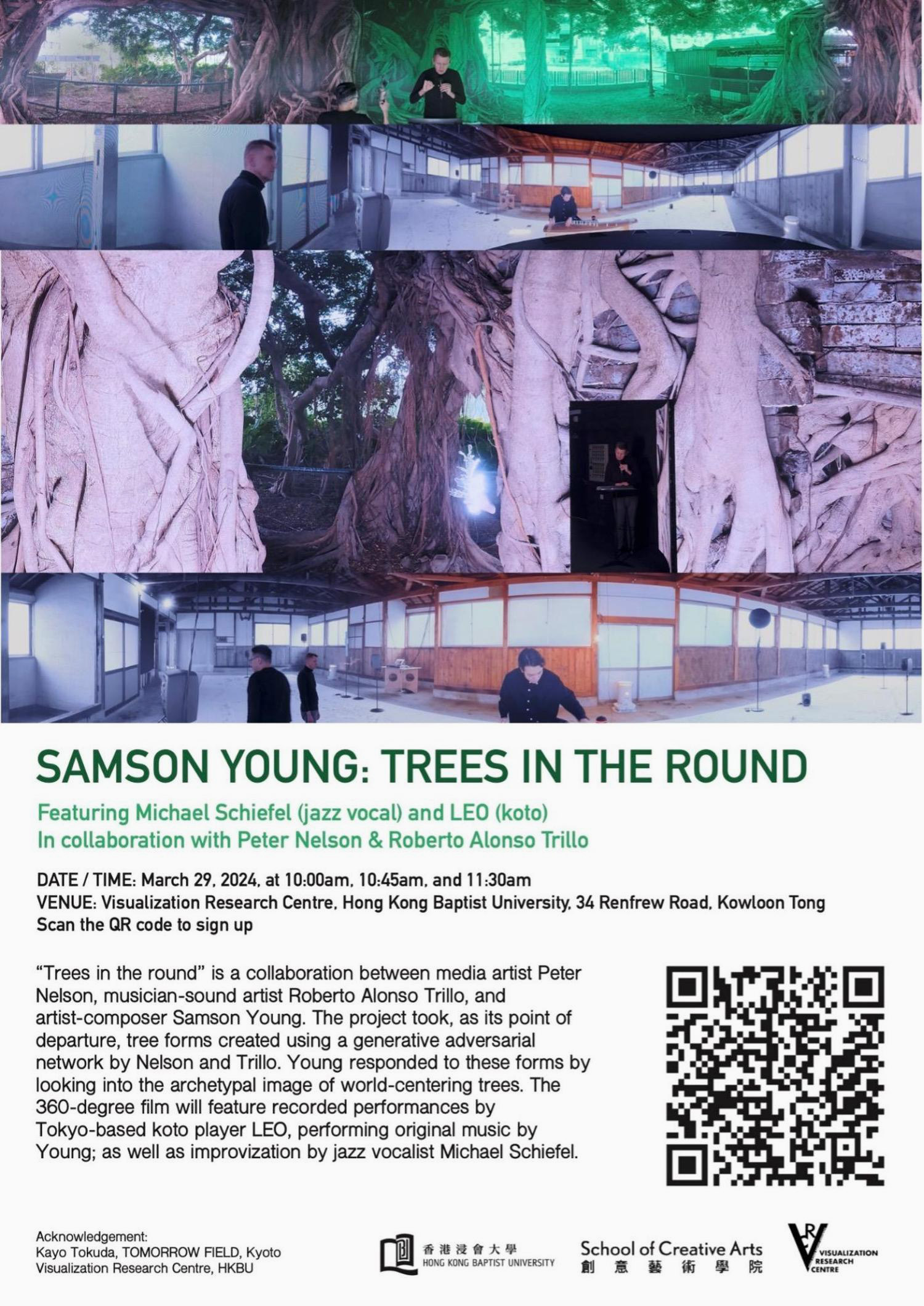

Emotional responses and psychological health among young people amid climate change, Fukushima's radioactive water release, and wars in Ukraine and the Middle East, and the mediating roles of media exposure and nature connectedness
School of Continuing Education
Authors: Sam S S LAU*, Cherry C Y HO
*Corresponding author
Addressing psychological burdens of youth emotional engagement in the climate crisis, alongside other global crises
Sustained climate action from individuals faces many psychological hurdles, just as nations encounter technological, financial, and political barriers in combating the climate crisis. Climate anxiety is considerably taxing to youths, especially as our planet is becoming increasingly vulnerable to climate-related and man-made disasters. In light of these emerging long-term global crises, our multi-country study reconceptualised the landscape perceived by youths, to which the climate crisis (C) is not experienced in isolation, but concurrently with war or armed-conflict crises (W) and radioactive-ecological crises (R), all of which shape the emotional responses of youths to global events.
Our findings suggest that global crises had compounding risks associated with a set of highly correlated negative emotions, including a shared sense of cross-crisis guilt prominently displayed by Chinese respondents. Total emotional engagement in ecological crises (but not wars) lead to worse psychological health outcomes, chiefly independent of respective media exposure, but strongly alleviated by nature connectedness. Grassroots support for SGD 13 relies on more than just climate messaging, but it must also address the compounded anxiety stemming from multiple global crises.
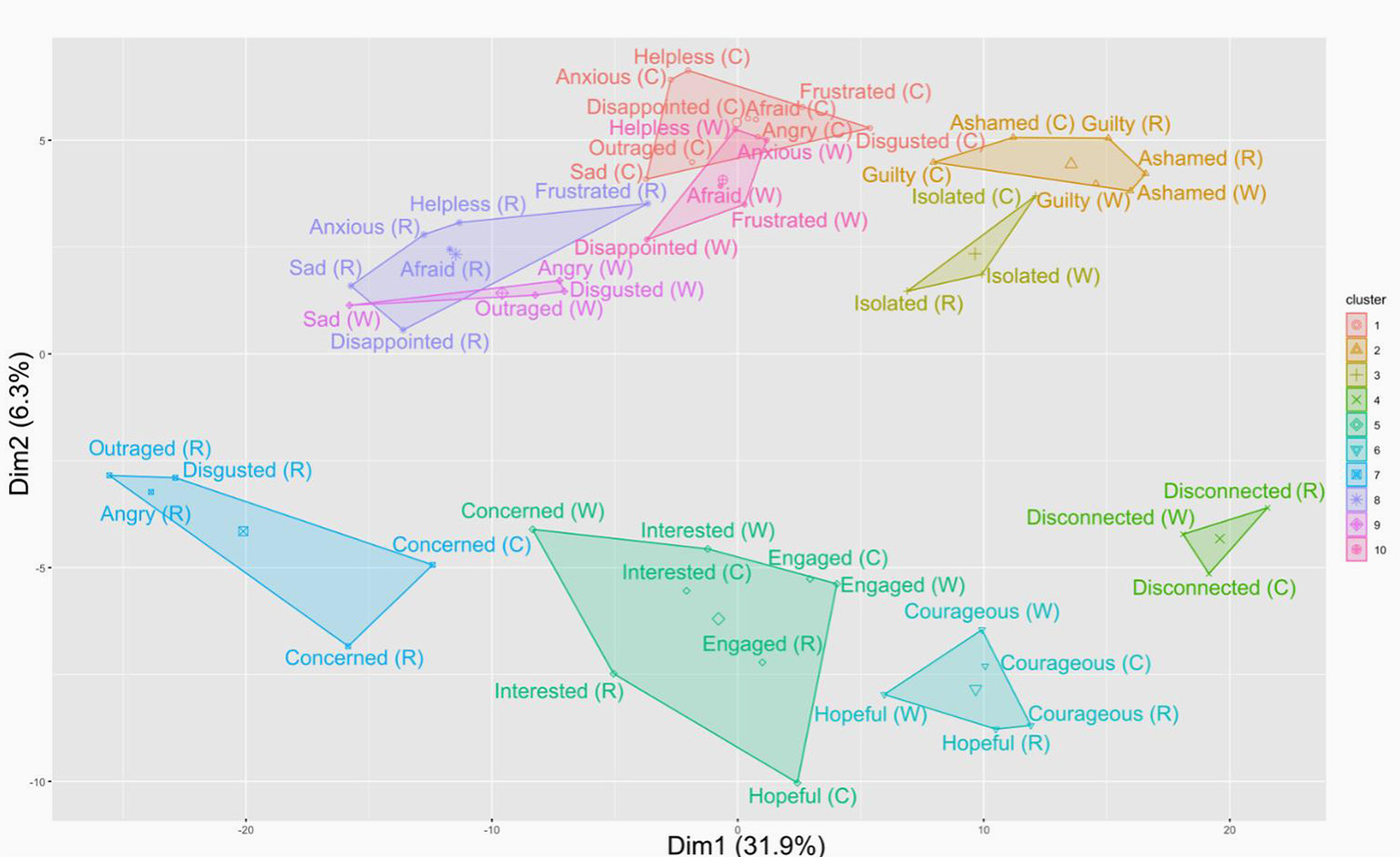

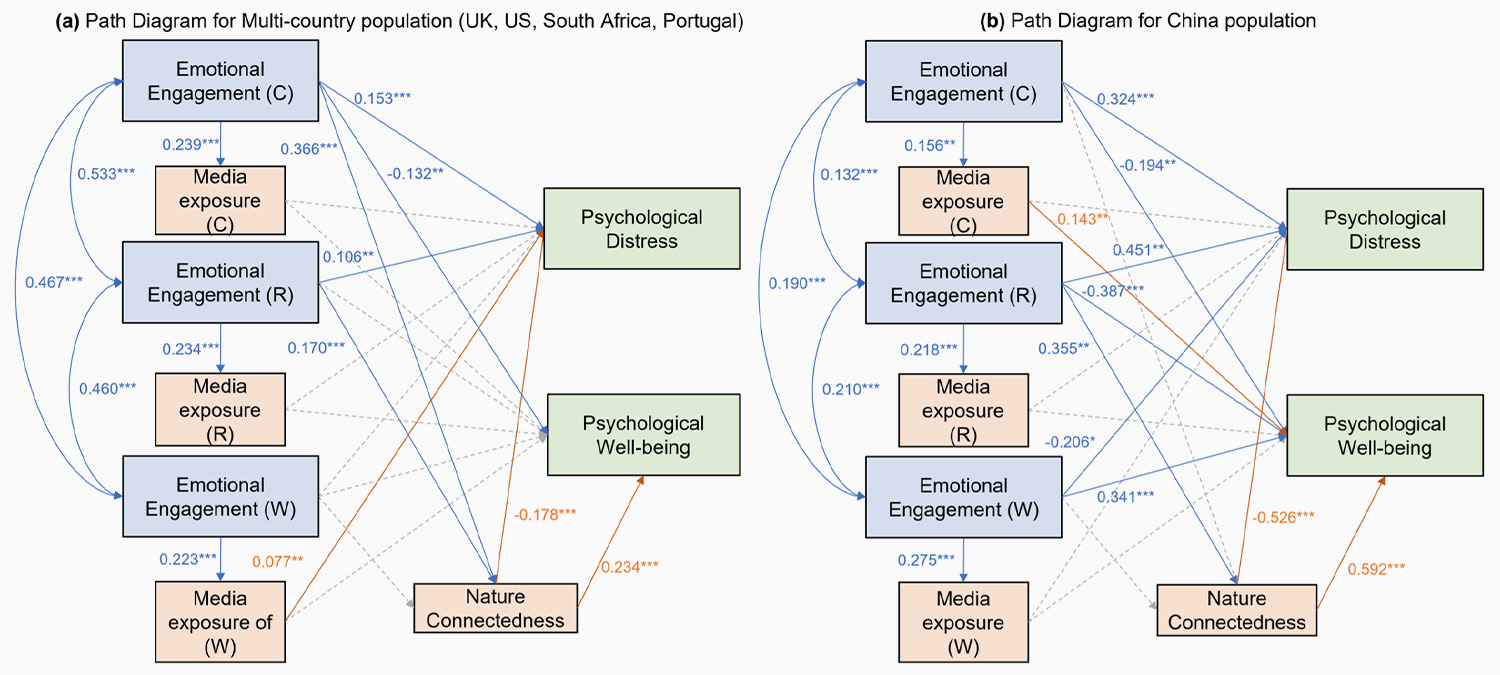

HKBU is firmly committed to addressing climate change and has made significant strides towards achieving carbon neutrality. The University has implemented a comprehensive set of policies and strategies to support its sustainability goals.
- Policy framework
The University has established various policies and guidelines to govern its sustainable development and operations. These include the Sustainability Policy, University Green Policy for Capital Projects and Major Addition and Alteration Projects for University Campus, Sustainable Procurement Policy, Sustainable Food Policy, and Waste Management Policy.
The Carbon Neutrality Policy, in particular, lays down the University’s target and strategy in reducing carbon footprint and achieving carbon neutrality, guiding its operations and development as it progresses towards its decarbonisation roadmap.
This policy framework provides a structured approach to driving environmentally responsible practices across the University. Relevant policies can be viewed on HKBU’s dedicated website on sustainability (https://hkbu-sustainability.hkbu.edu.hk/).
- Emission reduction targets
In 2019, HKBU developed a five-year energy management plan outlining specific actions to reduce greenhouse gas (GHG) emissions. The effectiveness of these measures is reviewed annually to ensure progress. Additionally, in line with Hong Kong's carbon neutrality roadmap, a Carbon Neutrality Strategy Plan was prepared in 2023, with the following targets:- Medium-term target: Reduce Scope 1 and 2 GHG emissions by 50% by 2035/36
- Long-term target: Achieve carbon neutrality for Scope 1 and 2 GHG emissions by 2044
- Decarbonisation strategies
To achieve its emission reduction targets, HKBU has implemented a comprehensive set of decarbonisation strategies across four key areas:- Energy saving and green buildings: Implementing energy-saving projects and maintain energy-efficient operations; develop on-site renewable energy sources; and pursuing green building certifications for new developments and major renovations.
- Green transport: Installing EV chargers at new carparks; upgrading and increasing the number of EV chargers at existing carparks; and replacing all traditional gasoline-powered vehicles with EVs.
- Waste reduction: Implementing sustainable procurement and green catering practices; introducing reward-based incentive programmes; and expanding recycling facilities.
- HKBU community engagement: Organising staff and student engagement activities, events, educational programmes; and installing energy performance dashboards in public areas to raise awareness.
Campus sustainability initiatives
HKBU has been actively promoting sustainability on campus through various initiatives aligned with the need for urgent climate action.
- Green Council’s webinar on waste reduction
The Green Council, a non-profit environmental stewardship organisation in Hong Kong, hosted a webinar on "Waste Reduction: Pathways for Achieving Zero Landfill" on 29 February 2024. As part of the event, Ms Kay Choy, Director of Estates at HKBU, was invited to share the University's sustainability efforts and the importance of fostering a green culture among students and staff, emphasising the need for personal engagement, integrating sustainability measures into daily operations, and advocating for sustainability across the campus community to inspire meaningful behavioural changes.
- Sustainability-themed learning event
The Library collaborated with the Estates Office to organise a sustainability-themed learning event for students on 28 February 2024. The session provided an opportunity for students to learn about the sustainable facilities, features, and initiatives available on the HKBU campus. By showcasing real-life examples of sustainability efforts, the workshop offered students a practical understanding of the HKBU's commitment to environmental stewardship.
- Sharing on catering sustainability
As part of the "Global Challenges II" course on the theme of "Plate and Planet," HKBU's Division of Transdisciplinary Undergraduate Programmes hosted a guest speaker session on catering sustainability on 9 January 2024. Guest speakers from the Estates Office and WWF Hong Kong engaged students on various aspects of sustainable food practices, such as government policies on waste management, food waste treatment initiatives, and the #EatForThePlanet campaign initiated by the Jockey Club Sustainable Campus Consumer Programme to promote sustainable dietary habits. The interactive session allowed students to explore the connections between global challenges and the University's sustainability efforts.
- Participation in Earth Hour 2024
Demonstrating its dedication to environmental conservation, HKBU actively participated in Earth Hour 2024 held on 22 March 2024 by switching off non-essential lights and appliances for one hour. This symbolic gesture aimed to reduce energy consumption and raise awareness of the importance of individual actions in combating climate change. The University effectively communicated this initiative through social media and mass email, encouraging both staff and students to be part of the collective effort.



